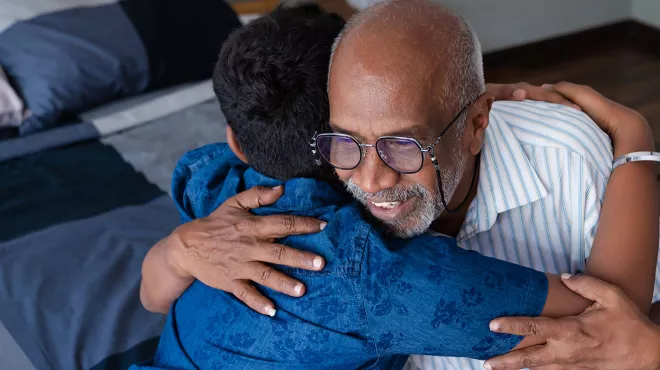ShantaQuilette, 42, never saw herself as someone at risk for a heart condition. But in 2012, that all changed. During her usual run on the treadmill, the former accountant felt her heart flutter and immediately told her doctor. After several misdiagnoses and trips to the emergency room, she still hadn’t received the care she needed. Six years later, she suffered a heart attack and a stroke.
Her stroke led her to seek answers. She learned that cardiovascular disease runs in her family, including her mother, who suffered a minor heart attack. She also learned that Black Americans have a disproportionately higher risk of cardiovascular disease.1 Today, ShantaQuilette, the “vivacious” mother and tax accountant from Dallas, TX, dedicates her time to advocating for women – especially Black women like herself and her mother – helping them take charge of their cardiovascular health.
The Disproportionate Burden of Cardiovascular Disease Among Black Americans
ShantaQuilette is not alone in her struggle. Cardiovascular disease is the leading cause of death each year in the US.2 While the general US population loses 655 000 lives to cardiovascular disease annually, Black Americans are 30% more likely to die of cardiovascular disease than others.1,3 And after decades of decline, cardiovascular disease mortality is on the rise in the US, with the alarming trend more pronounced among Black Americans.4
Why is this happening? Statistics show that Black Americans have higher rates of high blood pressure, obesity and diabetes – common conditions that increase the risk of cardiovascular disease.5 Genetic factors contribute to these higher rates, as do societal factors such as gaps in income and education.6 Other inequities, such as discrimination and health care access, can have a profound impact on treatment and health outcomes.7
Cardiovascular disease is not usually discussed in the Black community, but we need to talk about these real issues – it could potentially save lives.
That’s why ShantaQuilette is committed to increasing awareness in the Black community. “Cardiovascular disease is not usually discussed in the Black community, but we need to talk about these real issues – it could potentially save lives,” she said.






